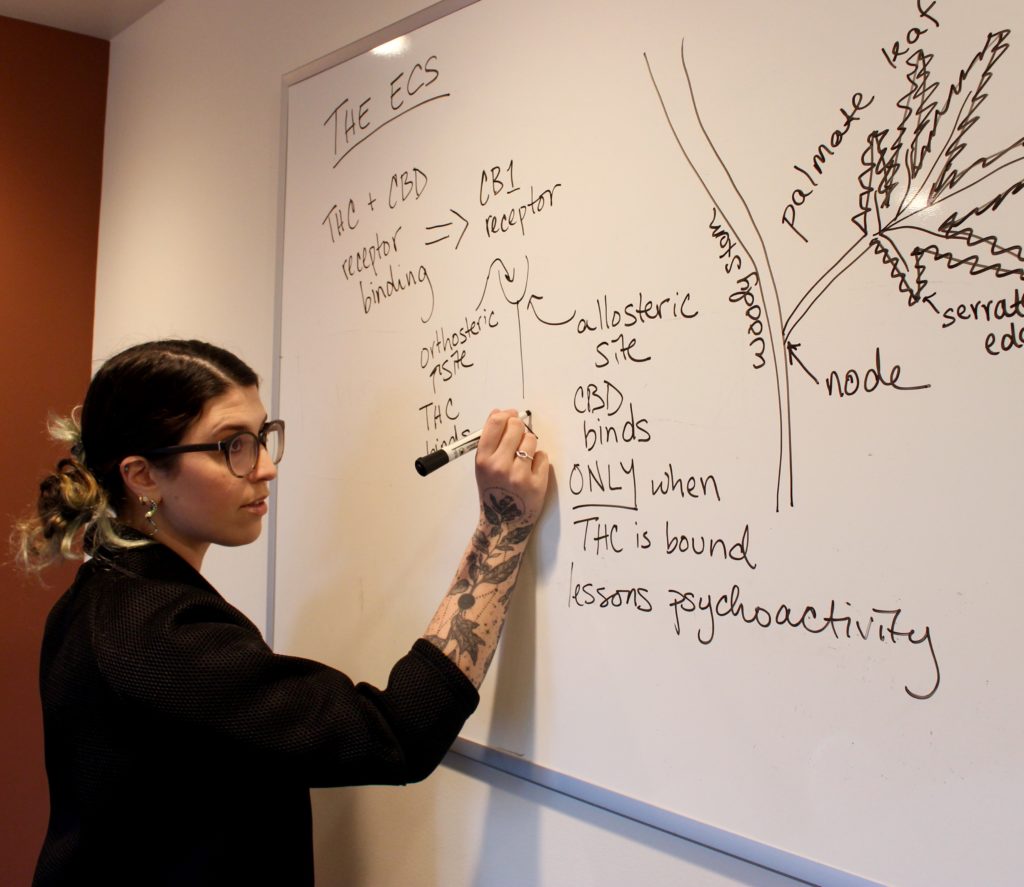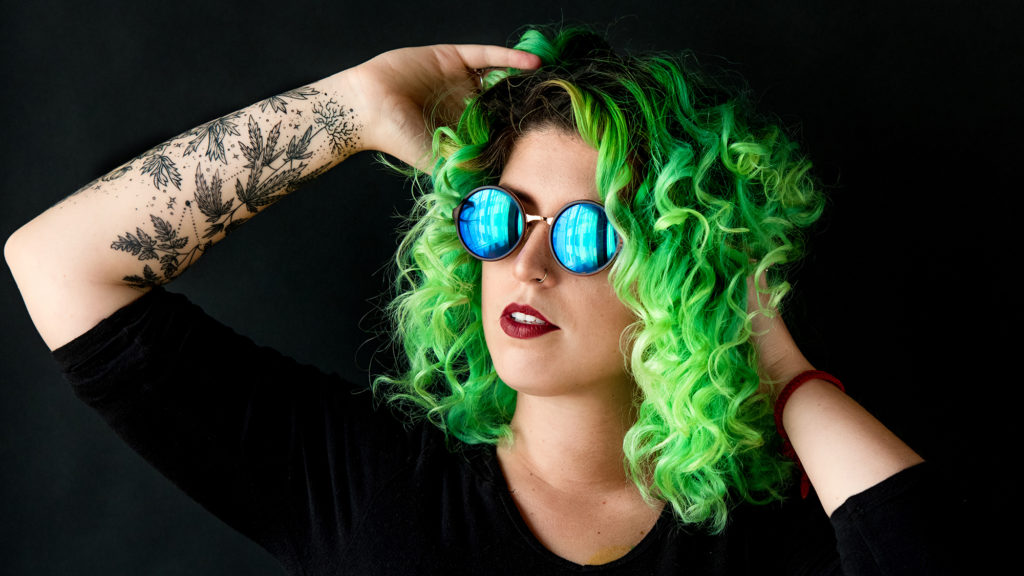I recently had the pleasure of interviewing Emma Chasen, the Director of Education at Sativa Science Club. After graduating from Brown University in 2014 with a degree in Medicinal Plant Research, Emma worked on clinical oncology trials with the university’s Oncology Research Group. When her supervisor refused a cannabis trial in favor of another expensive pharmaceutical drug, Emma packed her bags and headed to Portland where she found herself at Farma, a popular science-based dispensary. She was named Portland’s Best Budtender of 2016 and featured in Newsweek, MG Magazine, Stoner Magazine, High Times Magazine, and Teen Vogue for her work with cannabis and patients. Her mission is to educate people on the science behind cannabis so that they may take charge of their own healing as well as to address the need for training and education of budtenders, medical professionals, and the general public.
Tell me a little about Sativa Science Club and what you do there.
Sativa Science Club is a collaborative effort to uplift and uphold quality standards for the cannabis industry. It’s an educational resource hub that supports both industry professionals as well as cannabis enthusiasts. I work in partnership with Sativa Science Club to develop, teach and maintain the Core Science Certification program.
What kind of certifications can students earn from Sativa Science Club classes?
Students of Sativa Science Club have access to a wide variety of classes ranging in topics from horticulture to social media marketing. However, in order to become Sativa Science Club certified, students must go through the Core Science Certification (CSC) program. The CSC was born out of a need for comprehensive training on the fundamentals of cannabis science and client care. Retail professionals, especially, should be trained in this information because they are tasked with the large responsibility of not only accurately representing all of the makers and growers in the industry but also appropriately interfacing with novice consumers who often have questions relating to health and wellness. I created the CSC with Sativa Science Club to help provide businesses and individuals with easily accessible and accurate information. The certification program covers cannabis botany, compounds, the endocannabinoid receptor system, cannabis products and consumption methods as well as compassionate client care. The CSC is offered both here in Portland as well as online.

I see you have a degree in Medicinal Plant Research from Brown University. How much was cannabis involved in your education?
Yes, I have a specialized degree in Ethnobotany & Medicinal Plant Research that I created in the Biology department at Brown. Cannabis, unfortunately, was not part of my formal education. I wanted to study the secondary metabolites of cannabis as part of my senior thesis, but I could not due to federal regulations. So instead, I did my thesis on Mexican oregano. I did study cannabis unofficially while I was at school. I read any literature I could get my hands on and experimented with extraction methods.
What does a typical workday look like for you?
I teach the CSC every other week at Sativa Science Club. On the days that I am not teaching, I create educational resources for SSC, such as audiobooks, ebooks, webinars, online lectures etc. I also act as an educational consultant for the cannabis industry. I help brands develop educational marketing collateral and educational outreach campaigns so that they can increase their brand presence in a highly competitive market. I also work with individuals and help guide them to the cannabis products that might work best for them based on their lifestyle and desired experience. On any given day you can either find me teaching, having meetings, or holed up in a cafe on my computer.
What kinds of challenges have you found going from a more pharmaceutical industry to the cannabis industry?
I worked in oncology research for a brief stint after I graduated from Brown. The amount of funding is insane. I’m talking billion dollar trial after billion-dollar trial. With cannabis, that kind of funding doesn’t exist. And even if it did there are still significant barriers to research. The mindset of the allopathic, pharmaceutical industry is also way different than how I like to approach cannabis medicine. In the allopathic model, you take a standardized dose of a pill, that is usually a synthesized compound, and that pill has a result that is usually consistent for most people. Cannabis medicine is highly variable and therefore cannot be standardized like pharmaceuticals. There is no standard dose for cannabis products and while we can predict the outcome or experience of cannabis products, enjoyable doses and experiences vary widely among people. That ideological shift from consistent predictability in pharmaceuticals to highly limited predictability in cannabis is uncomfortable for many people. I believe cannabis should follow a nutraceutical model. Because it is a medicinal plant with a diverse range of compounds there will never be a standardized dose. Therefore, consumers need to engage with cannabis as they’d engage with an alternative, holistic medicine.
What do you think dispensary owners can do to incorporate more science-based information into their businesses?
Dispensaries don’t need to do much to incorporate more science-based information into their business. To start, ask growers to provide terpene results of their flower. Having terpene data will help staff engage with scientific data, analyze it and use it to sell product. Have employees run weekly education programs where they invite vendors, growers, scientists, extraction experts, etc. to share information with staff. It does not take much money or time to implement education into a dispensary setting. It all starts with the employees and therefore hiring motivated employees who have a desire to learn is the first step in incorporating more education into the business. And of course, visit sativascienceclub.com for endless resources.
Find Emma around the web: emmachasen.com | IG: @echasen
